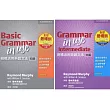Editors should approach their work with an informed worldview, ensuring that harmful stereotypes, cultural insensitivities and inaccurate information are avoided. Knowing how to do so - and what to replace them with - can be tricky. Editing for Sensitivity, Diversity and Inclusion is a guide for professional editors, providing evidence-based definitions, recommendations and support for emerging and experienced editors working with fiction and non-fiction genres. Part One introduces the foundations of professional editing and what editors need to know to conduct themselves well in professional contexts. Part Two applies this knowledge to professional practice, covering topics such as plagiarism, literary and cultural appropriation, critical appraisal, and developing a workplace policy and style guide. Part Three explores an extensive range of topics relevant to editing for sensitivity, diversity and inclusion, including addiction, dependence and recovery; class and socio-economic status; indigeneity; religious, spiritual and other belief systems; sex and gender identity; and trauma and torture.



 天天爆殺
天天爆殺  今日66折
今日66折 




























 博客來
博客來 博客來
博客來 博客來
博客來 博客來
博客來 博客來
博客來